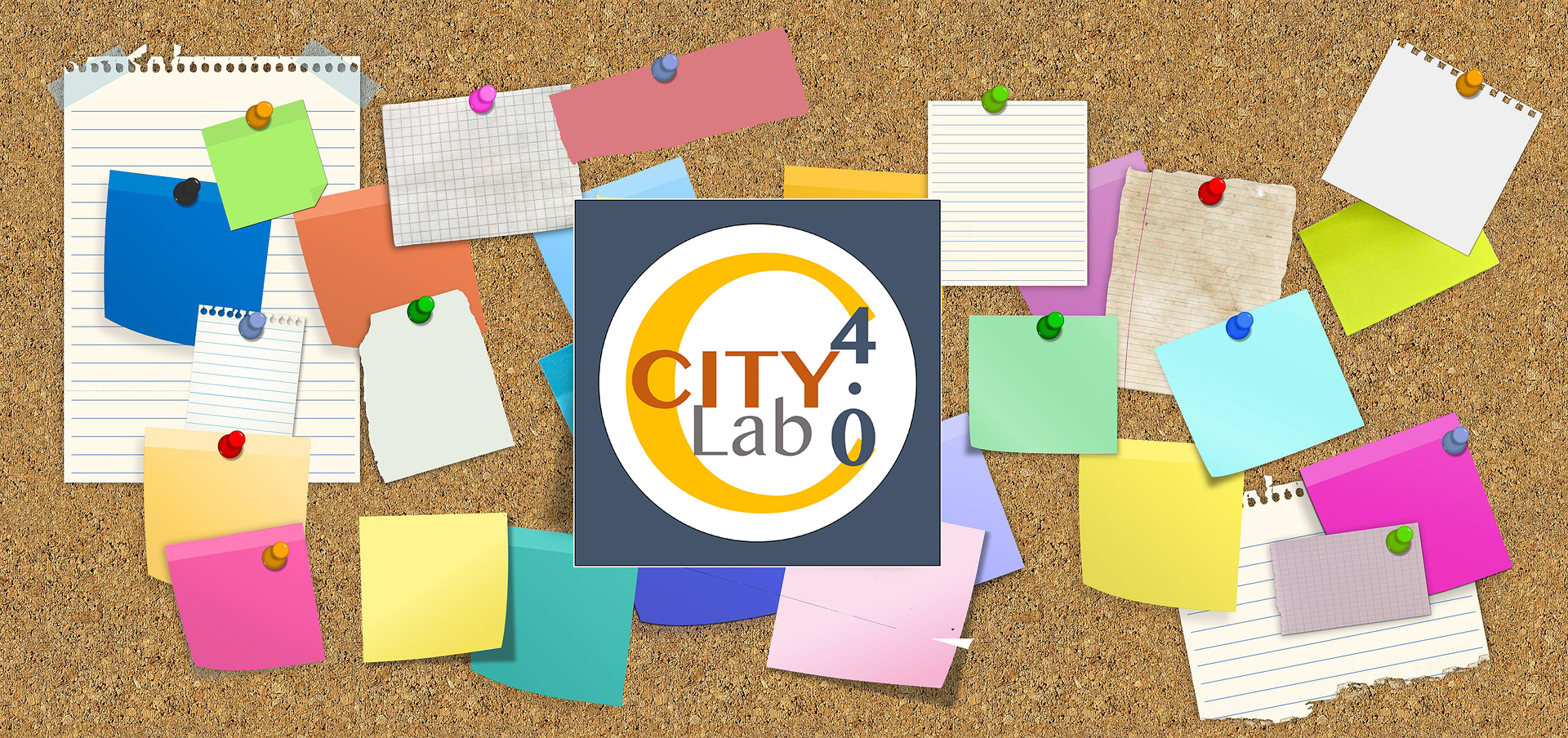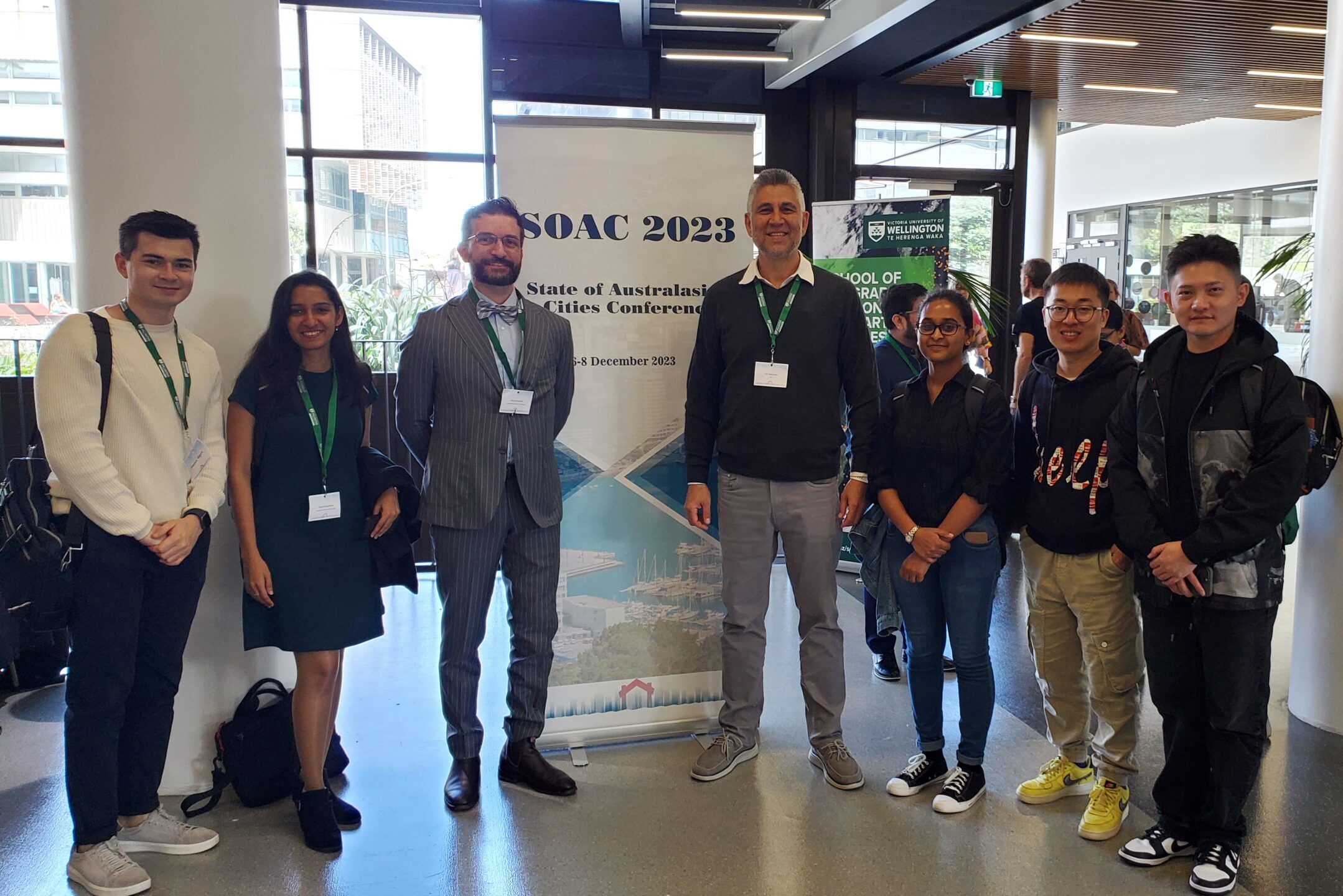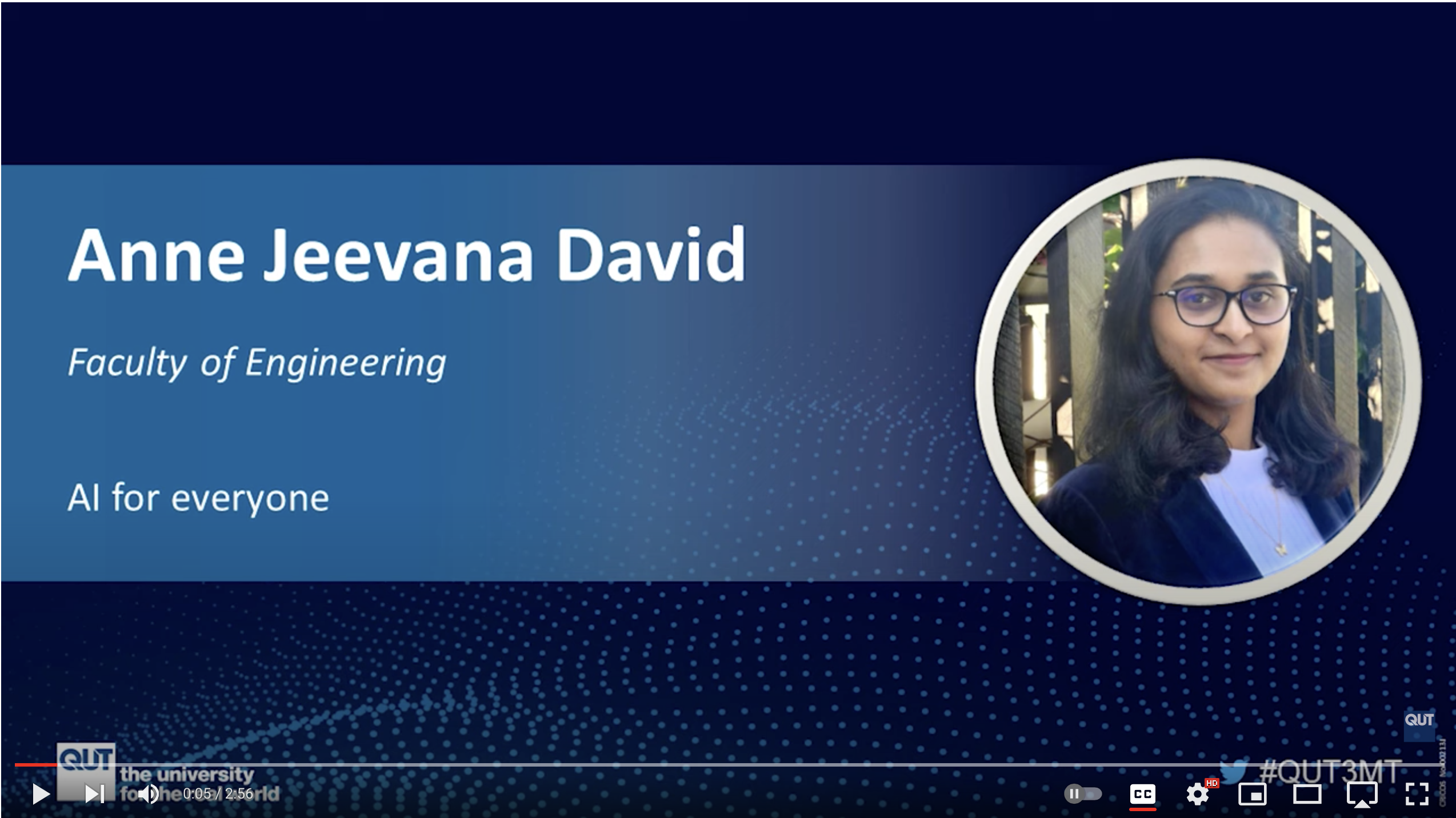News and Events
——————————————————————————————————————————

The City 4.0 Lab research is included as a best practice case study in Planning Institute Australia’s PlanTech Guidelines
The Planning Institute of Australia has made a significant contribution to the intersection of AI and urban planning by releasing its groundbreaking PlanTech Best Practice Guidelines. These guidelines, that are designed to equip professionals with the knowledge and tools needed to navigate the complexities of AI in urban planning effectively, contain a City 4.0 Lab research project entitled ‘Responsible Urban Innovation with Artificial Intelligence Systems for Local Governments’. The guidelines are available here.
——————————————————————————————————————————
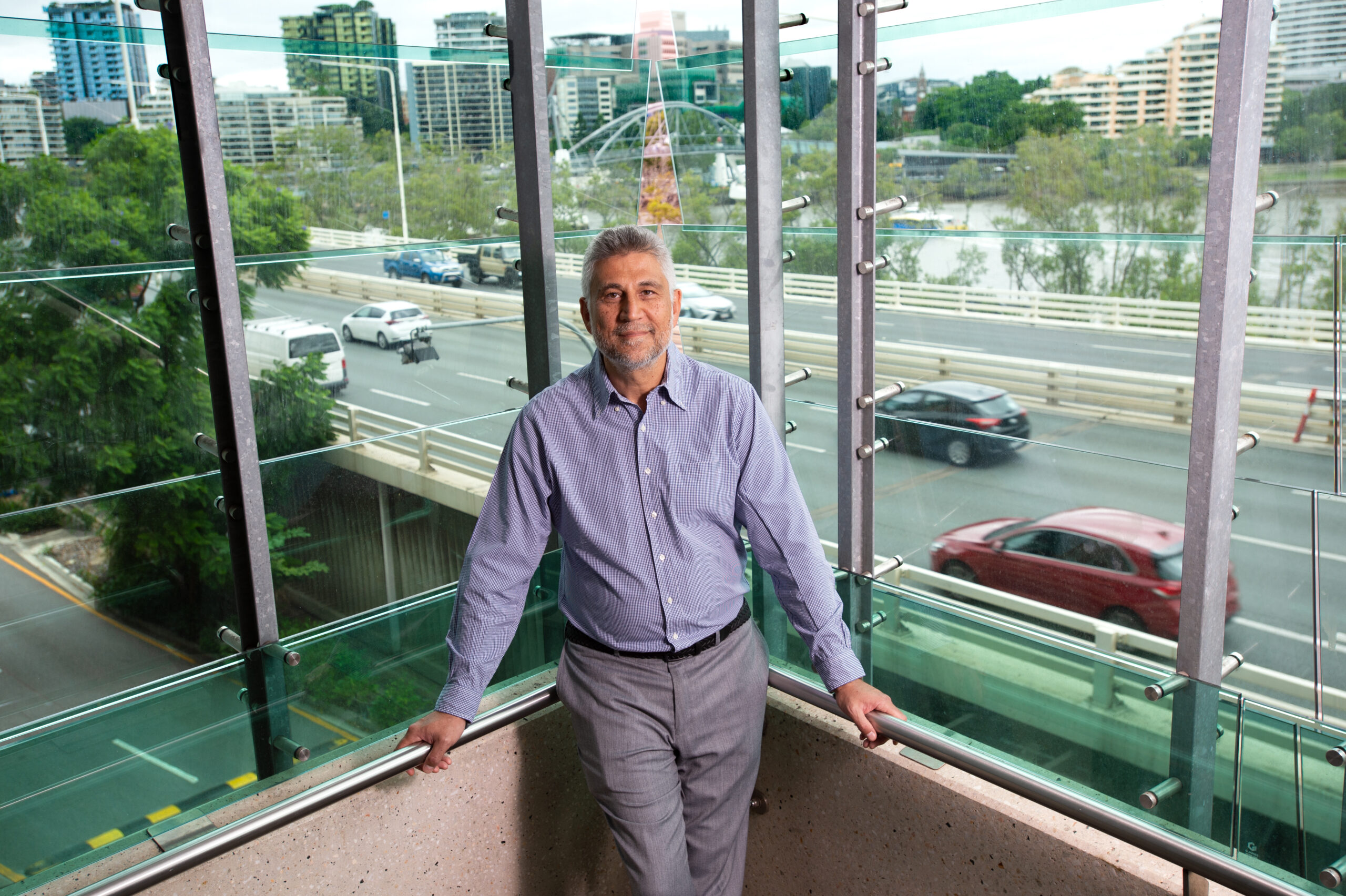
The City 4.0 Lab Co-Director is named in the World’s Top 1% Scientists List
Congratulations, our co-director Prof. Tan Yigitcanlar, on being recognised as one of the top 1% of scientists globally! Being part of the Highly Cited Researchers 2023 is truly remarkable and a testament to Tan’s dedication, expertise, and contributions to the Urban Studies, Technology and Planning field. This prestigious accolade is a reflection of the collective efforts of his outstanding team and collaborators. See the Highly Cited Researcher designations in 2023 here.
——————————————————————————————————————————
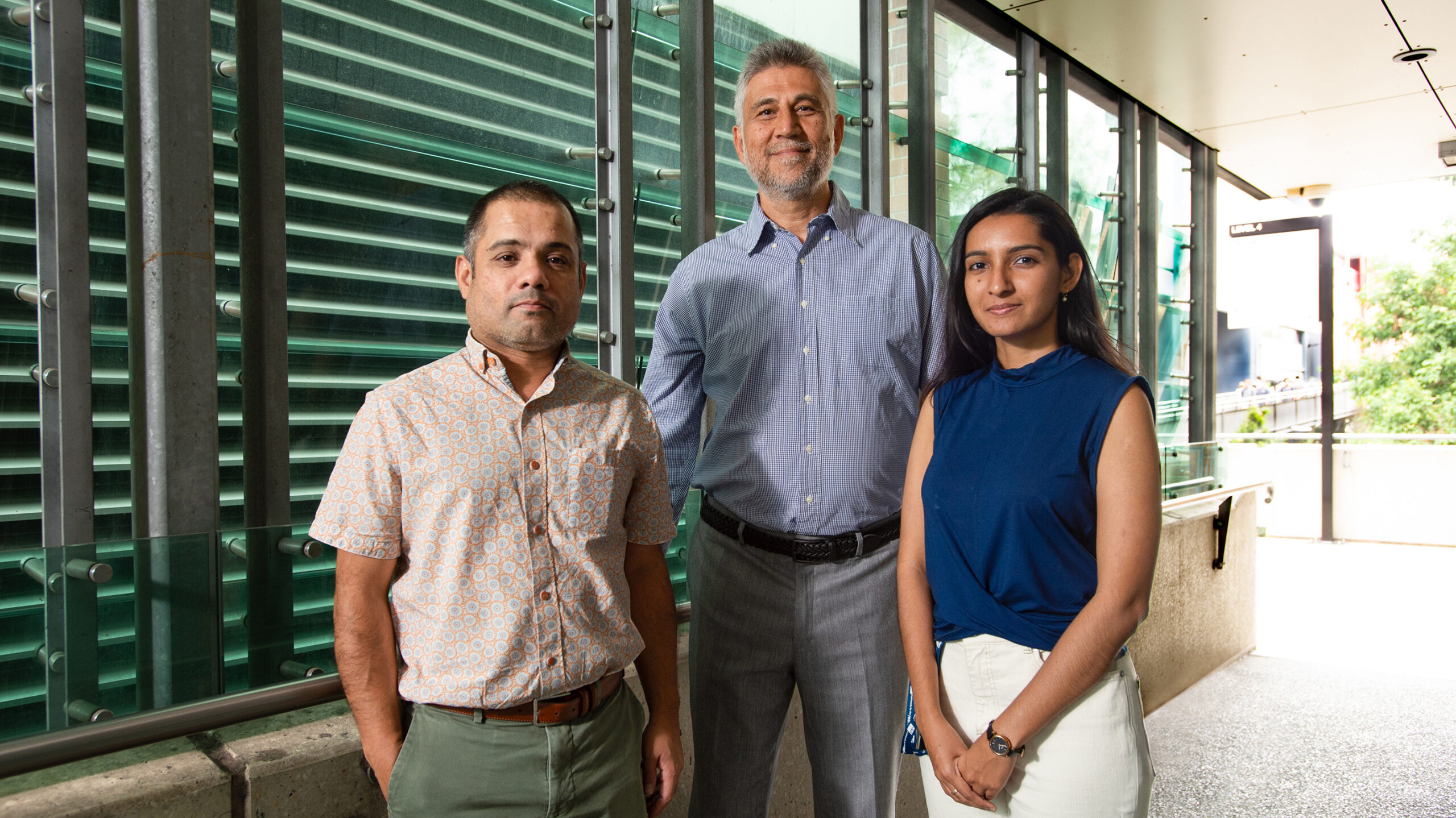
The City 4.0 Lab members’ research on AI-driven chatbots for local governments is profiled by QUT
QUT City 4.0 Lab researchers have conducted a deep dive into AI-powered chatbots in the local government sector to look at their benefits and risks, what they are used for and why, and how users view them. The comprehensive overview was completed by an international research team including QUT PhD student Sajani Senadheera, Professor Tan Yigitcanlar from the QUT School of Architecture and Built Environment and Professor Kevin Desouza from the QUT School of Management. Read more here.
——————————————————————————————————————————
The City 4.0 Lab members attended the 2023 State of Australian Cities Conference
Prof Tan Yigitcanlar, A/Prof Mirko Guaralda, and five PhD researchers–namely Massimo Regona, Sajani Senadheera, Anne David, Fei Li, and Wenda Li–attended the 2023 edition of the State of Australian Cities (SOAC) Conference organised at Wellington, New Zealand between 3-8 December 2023, and presented the research they have been undertaking at the City 4.0 Lab.
——————————————————————————————————————————
The City 4.0 Lab Co-Director is named as an Australia’s Research Field Leader
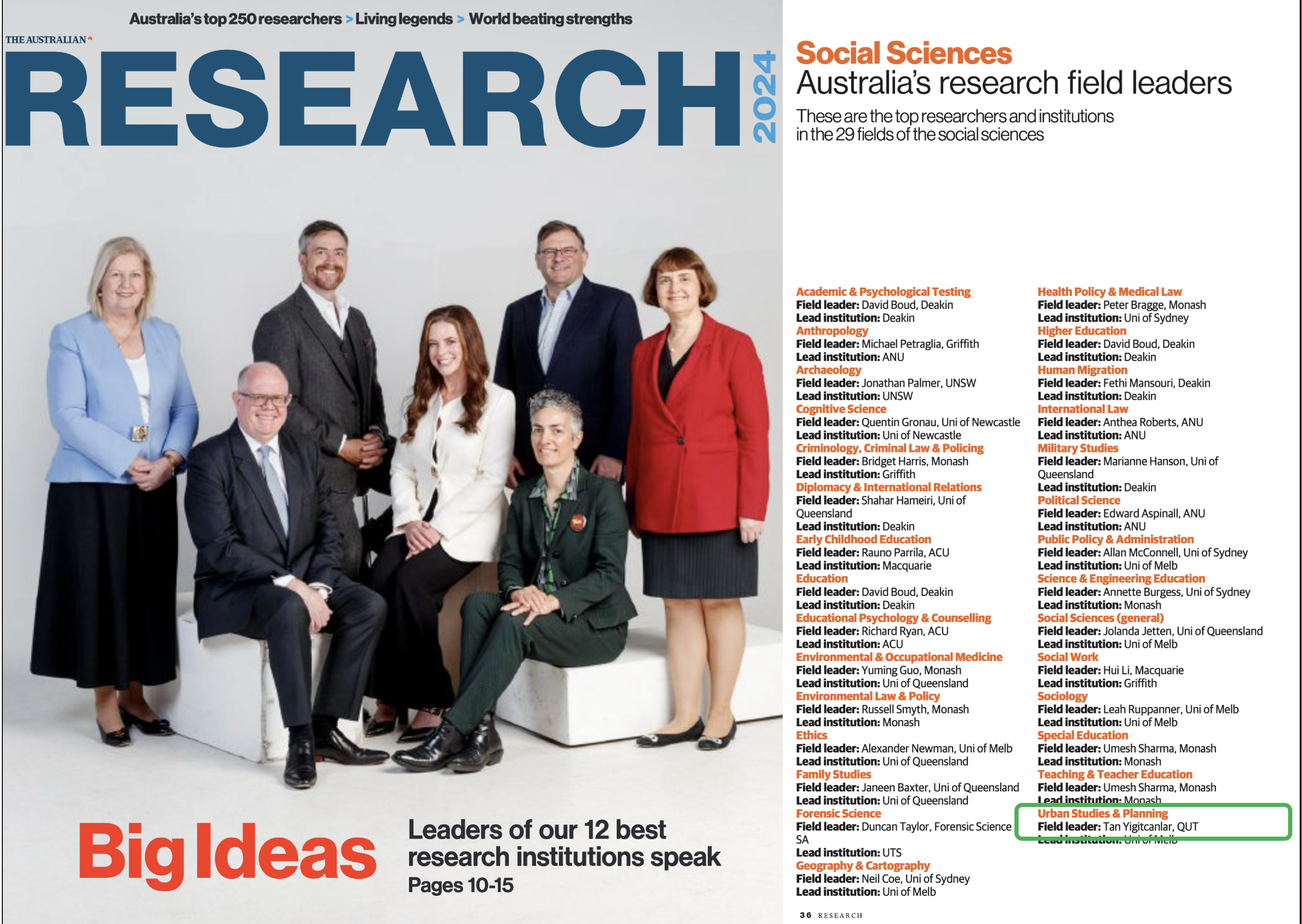
Congratulations to the City 4.0 Lab co-director Tan Yigitcanlar for being named as the Australia’s SocialSciences Research Field Leader for Urban Studies and Planning discipline in this year’s edition of The Australian Research Magazine. The full-list of Australia’s top 250 researchers is available from the following link: https://todayspaper.theaustralian.com.au/html5/reader/production/default.aspx?pubname=&edid=e45ac3b6-47df-44cc-b1ab-939725e848e8.
——————————————————————————————————————————
University of Liege Smart City Institute meets QUT City 4.0 Lab
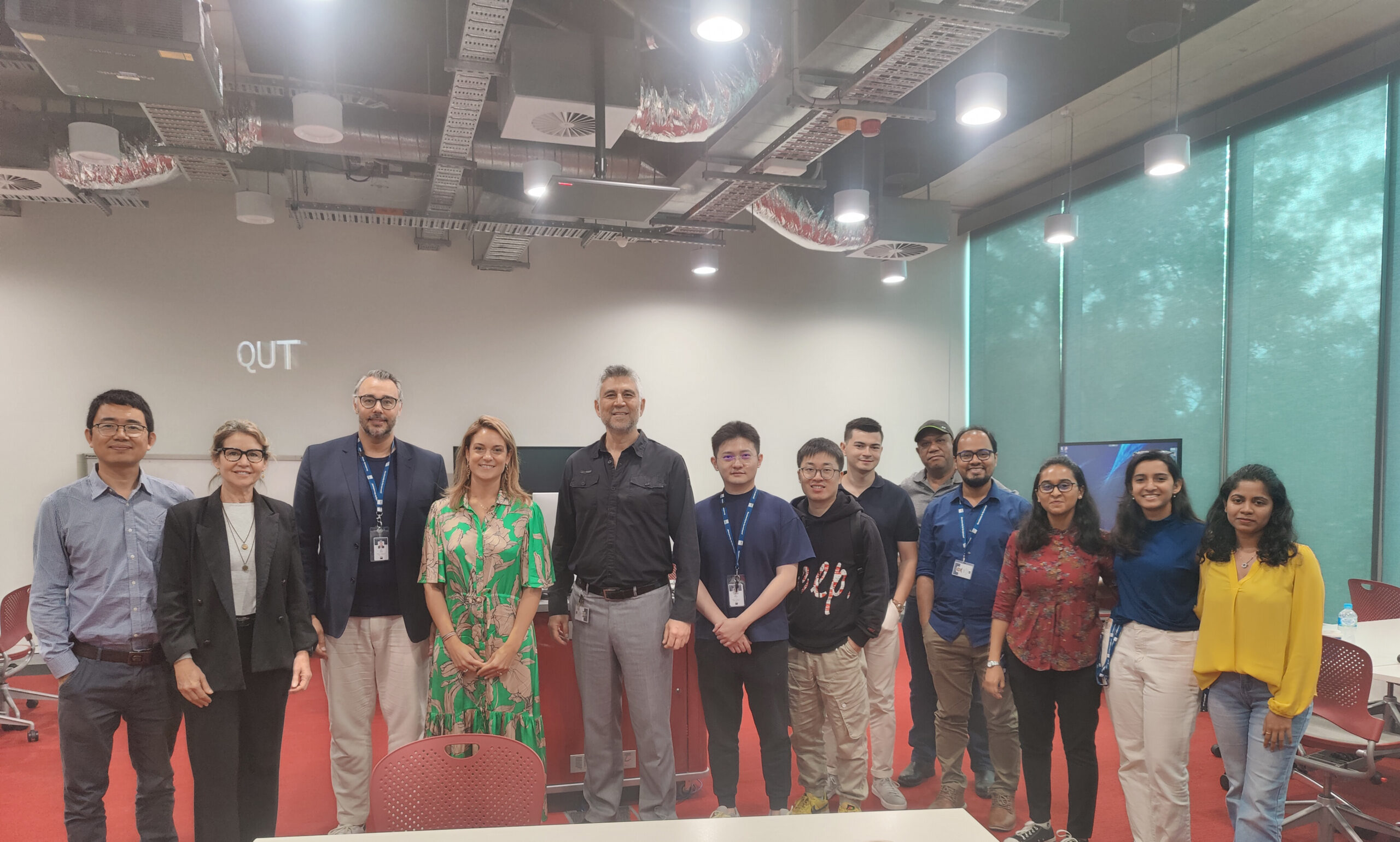
Highly engaging discussions took place on SmartCities and Urban AI during the half day seminar co-hosted by QUT Centre for Future Enterprise and QUT City 4.0 Lab. Thanks to all speakers particularly our guest of honour University of Liège Smart City Institute’s Director Nathalie Crutzen and Anne Jeevana, Sajani Suwanka, Sk Tahsin Hossain, Raveena Lakmini, Massimo Regona, Fei Li, Wenda Li, Ken Polin, Abdulrazzaq Shaamala. Special thanks goes to David M. Herold for taking care of the logistics of the event and also introducing Nathalie to the QUT research community. We look forward to grow the research relationships between QUT City 4.0 Lab and University of Liege’s Smart City Institute.
——————————————————————————————————————————
The City 4.0 Lab member PhD researcher competes at the QUT Three Minute Thesis (3MT) Competition Finals
Anne Jeevana David, a PhD researcher at the QUT City 4.0 Lab, was one of the 2023 QUT Three Minute Thesis finalists. Her presentation was entitled, ‘AI for Everyone’. She reported part of her PhD work that aims to comprehend and pinpoint policy strategies for responsible innovation in the local government AI system. Her PhD research develops a comprehensive innovative policy framework for local government AI policy system. The developed framework will be tested in the local government context of Brisbane, Phoenix, Salamanca, Jeddah and Hong Kong. The findings of this PhD work will be useful for the policymakers and government officials to deliver a successful local government AI system which will be benefited the investment of the local government and useful to the end users. The presentation video can be viewed at: https://youtu.be/I5n86d_ddYA.
——————————————————————————————————————————
The City 4.0 Lab member authors two-volume book entitled “Smart City Blueprint” by Routledge and CRC Press

The smart city movement, during the last decade and half, advocated the built environment and digital technology convergence with the backing of institutional capital and government support. The commitment of a significant number of local governments across the globe, in terms of official smart city policies and initiatives, along with the constant push of global technology giants has reinforced popularity of the movement. This two-volume book on smart cities thoroughly explores and sheds light on the prominent elements of the smart city phenomenon and generates a smart city blueprint. This first volume, with its 12 chapters, provides sound understanding on the key foundations and growth directions of smart city frameworks, technologies, and platforms, with theoretical expansions, practical implications, and real-world case study lessons. The second companion volume offers sophisticated perspectives on the key foundations and directions of smart city policies, communities, and urban futures, with theoretical expansions, practical implications, and real-world case study lessons. For more information, visit: https://www.routledge.com/Smart-City-Blueprint-Framework-Technology-Platform/Yigitcanlar/p/book/9781032517162 and https://www.routledge.com/Smart-City-Blueprint-Policy-Community-Futures/Yigitcanlar/p/book/9781032517193.
——————————————————————————————————————————
The City 4.0 Lab researchers have found that climate change belief is not uniform in relation to political orientation
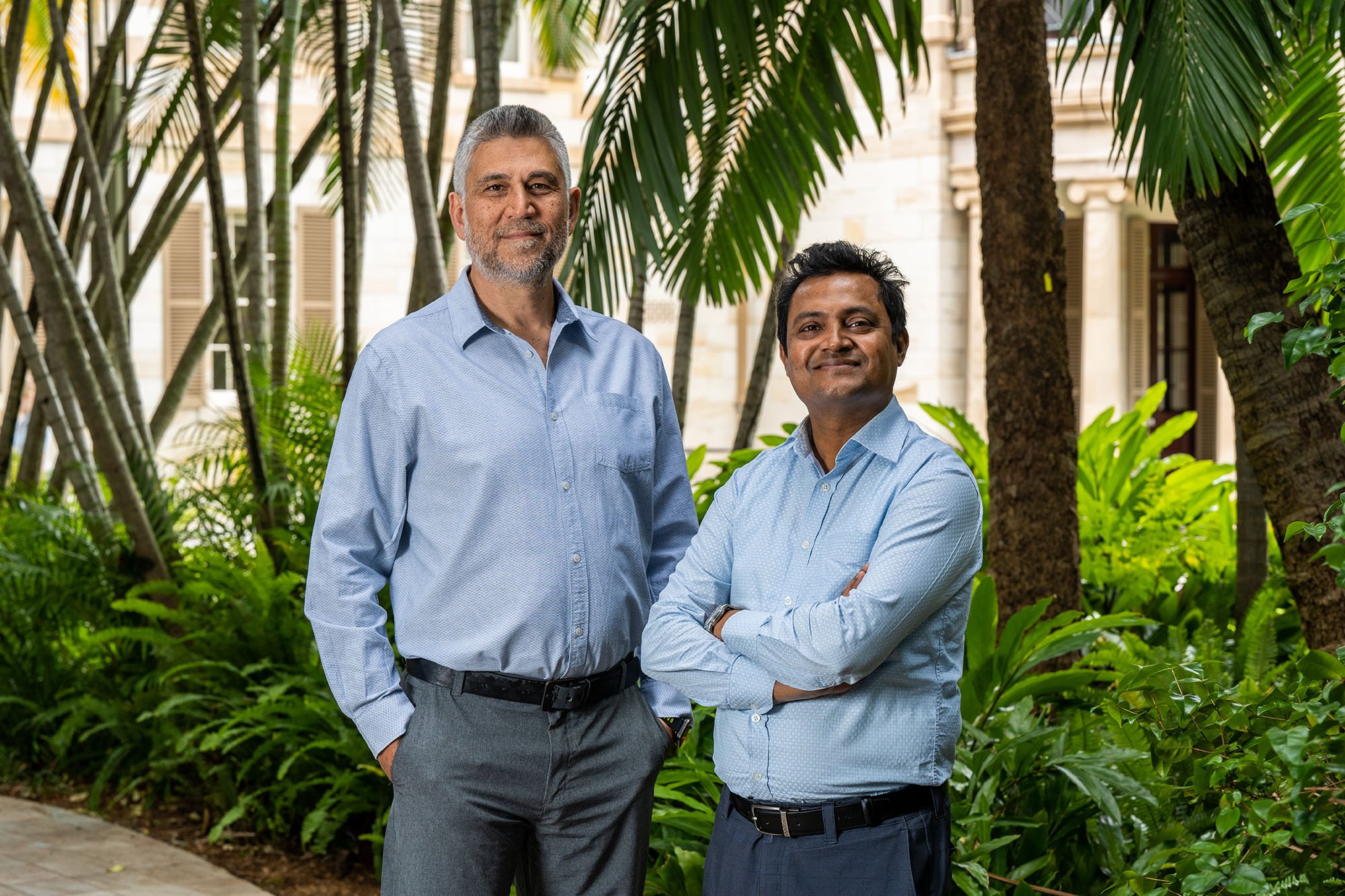
Professor Tan Yigitcanlar from QUT’s School of Architecture and Built Environment and City 4.0 Lab his former doctoral student Dr Md Golam Mortoja – who now works for the Queensland Government’s Department of Resources – found that 64 per cent of climate change believing southeast Queensland peri-urban dwellers are made up of people of right and left-wing persuasion. Professor Yigitcanlar said a survey for their research paper published in the Land Use Policy journal found that on the other hand, climate change deniers predominantly have right-wing political views and are more likely to be older and relatively less educated. “Climate change deniers are highly rigid in their denial of ‘anthropogenic climate change’ which is environmental changes attributed to human activity,” Professor Yigitcanlar said.“The survey – conducted in a region experiencing highly destructive impacts of climate change – also found that climate change deniers’ views do not generally moderate or change with exposure to climate risk events. The results are drawn from 659 responses to an April 2021 survey of southeast Queensland peri-urban dwellers (those who live on the outskirts of, or close to major cities) for their study. To read the rest of the story, visit: https://www.qut.edu.au/news?id=184642.
——————————————————————————————————————————
The City 4.0 Lab member authors an article entitled “Augmenting Community Engagement in City 4.0” in Sustainability
An engaged community that reflects a diverse set of experiences is key to an equitable and livable city. However, maximising engagement activities is often difficult when competing with residents’ busy schedules and hectic daily lives. To explore new opportunities in this space, we developed four augmented reality experiences to learn more about the potential for this technology to transform community engagement practices in the context of City 4.0. The City 4.0 utilises digital technologies to transform public services and the local economy. Its goal is to produce more sustainable urban and societal outcomes. Our findings suggest that augmented reality is least successful when used to recreate existing engagement practices, such as surveys or questionnaires, and more successful when it empowers a sense of agency and ownership over the process in its users. The way augmented reality situates information can aid in making public space feel personal to the individual. In this way, augmented reality’s affordances are less about overlaying digital information in physical space and more about how this can enable individuals to reclaim a sense of control and relevance in the relationship between citizens and councils. We aim to contribute: (a) Novel interaction paradigms and an evaluation of their effectiveness and limitation, and; (b) New insights into how to support citizens’ sense of agency in public discourse with augmented reality. This open access paper highlights the value of augmented reality’s affordances to bring to light new interactions between community engagement stakeholders. To download a free copy, visit: https://doi.org/10.3390/su14169803.
——————————————————————————————————————————
The City 4.0 Lab member authors a book entitled “Urban Analytics with Social Media Data” by CRC Press
The use of data science and urban analytics has become a defining feature of smart cities. This timely book is a clear guide to the use of social media data for urban analytics. The book presents the foundations of urban analytics with social media data, along with real-world applications and insights on the platforms we use today. It looks at social media analytics platforms, cyberphysical data analytics platforms, crowd detection platforms, City-as-a-Platform, and city-as-a-sensor for platform urbanism. The book provides examples to illustrate how we apply and analyse social media data to determine disaster severity, assist authorities with pandemic policy, and capture public perception of smart cities. This will be a useful reference for those involved with and researching social, data, and urban analytics and informatics. For more info, visit: https://www.routledge.com/Urban-Analytics-with-Social-Media-Data-Foundations-Applications-and-Platforms/Yigitcanlar-Kankanamge/p/book/9781032244976.
——————————————————————————————————————————
The City 4.0 Lab member co-authors the “Smart Cities of Brazil: Performance of Brazilian Capital Cities” Report
Recently released ‘Smart Cities of Brazil: Performance of Brazilian Capital Cities‘ report explores urban smartness performances of Brazilian capital cities with a novel methodological approach developed by the members of the City 4.0 Lab. The report is an outcome of close collaboration among a number of Australia-Brazil Smart City Research and Practice Network member institutions, and supported by the Australia Brazil Chamber of Commerce Inc. This open access report, published in both English and Portuguese languages, offers an invaluable source of information for urban policymakers of the investigated 27 Brazilian capital cities, and many others in Brazil and internationally, in making informed decisions on transforming their cities into smarter ones.
——————————————————————————————————————————
The City 4.0 Lab members edit a Special Session on “City 4.0: Urban Planning and Development in the Age of Digital Transformation” in Sustainability
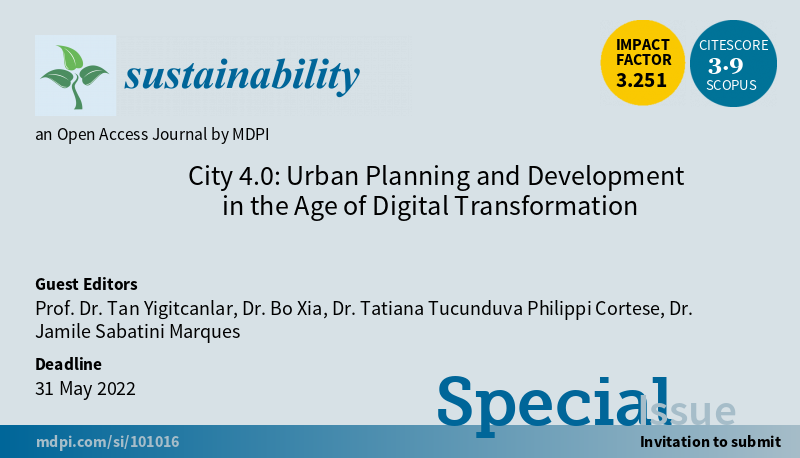
The combination of the computer and distributed networks during the last several decades has led to two ‘Digital Revolutions’ that today allow anyone to create, disseminate, and access any information anywhere, any time and from any smart device. The birth of the ‘Digital Age’ is a result of a research ecosystem that was nurtured by government spending and military–industry–academia collaboration, along with the alliance of community organisers, communal-minded hippies, do-it-yourself hobbyists and home-brew hackers. This Special Issue invites papers reviewing, empirically exploring or theoretically expanding the City 4.0 concept and practice from the angle or urban planning and development (or in simple terms, urban planning and development in the age of Industry 4.0). We welcome manuscripts that contribute to conceptualisation, policy, strategy, legislation, process or practice or at their interfaces, in the form of empirical research articles, systematic literature reviews, case reports, viewpoints, perspectives and short communication pieces. For more info, visit: https://www.mdpi.com/journal/sustainability/special_issues/City_4.
——————————————————————————————————————————
The City 4.0 Lab organises a Special Session on “Adaptable Urban Environments for Human Wellbeing and Environmental Sustainability” at the SRI2022 Congress
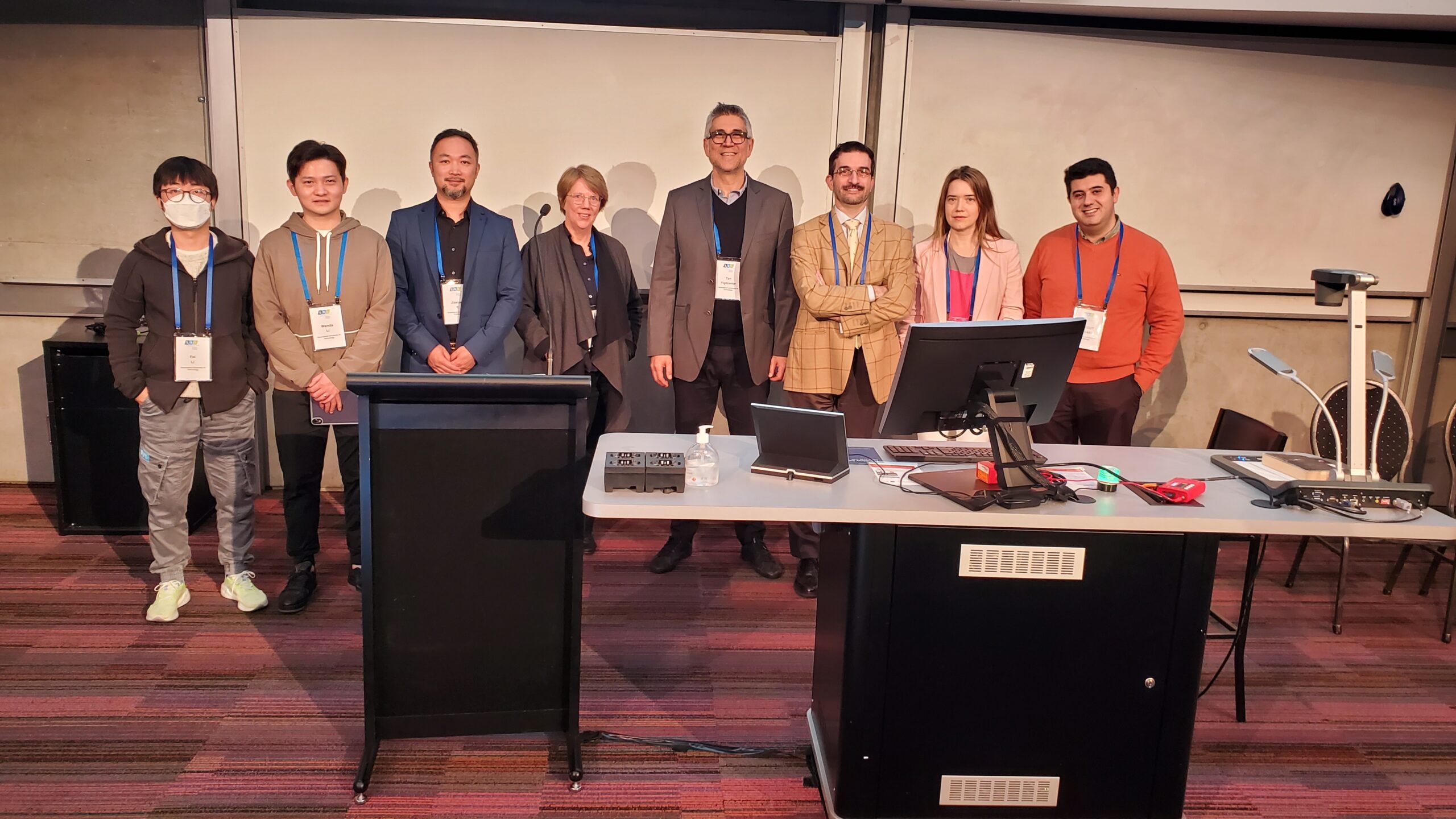
Sustainability Research & Innovation (SRI2022) Oceania Satellite Event 29 June – 1 July 2022, Queensland University of Technology, Brisbane. Sustainability leaders, experts, industry and innovators from Australia, New Zealand and the Pacific shared their knowledge on sustainability challenges and opportunities in the Oceania region as part of a major international sustainability event. An Australian consortium of academia and government partners, coordinated by Future Earth Australia, hosted the sustainability-focused event at Queensland University of Technology, Brisbane on 29 June – 1 July 2022. This event is a satellite event of the Sustainability Research & Innovation Congress 2022 (SRI2022) that happened online and in Pretoria, South Africa on 20-24 June, 2022. Our lab organised a session on adaptable urban environments with participation of 9 lab members.
——————————————————————————————————————————
The City 4.0 Lab collaborates with QUT Smart City Research Group
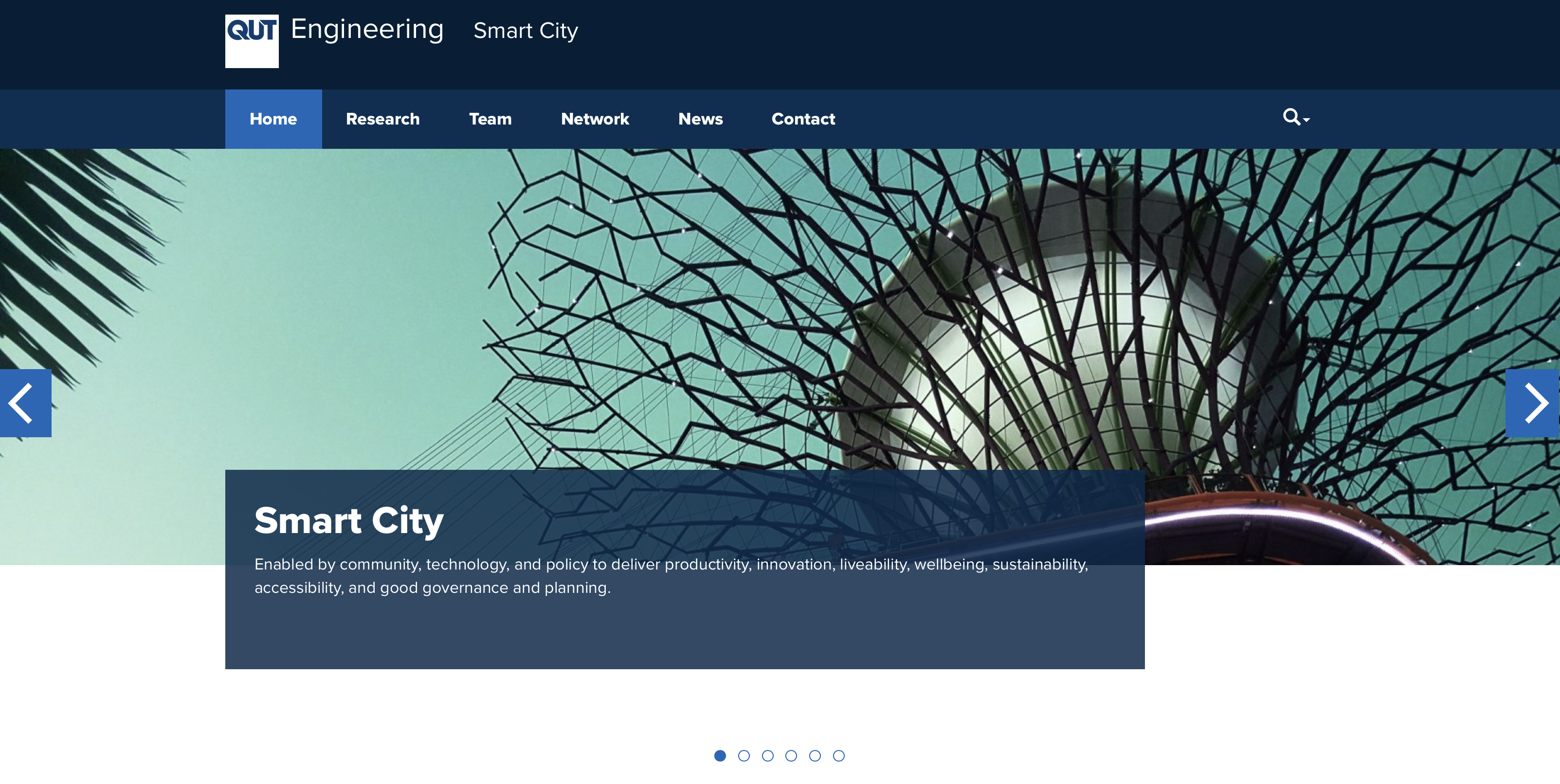
QUT Smart City Research Group is an assembly of multidisciplinary scholars with complementary research expertise on the various aspects of smart and sustainable cities and communities. The research group also houses QUT Urban AI Hub that offers research opportunities to higher degree researchers on smart cities and artificial intelligence (AI) technologies. The hub investigates, while also considering the constraints, the prospects of AI and other smart urban technologies range from expanding infrastructure capacity to generating new services, from reducing emissions to engaging the public, from minimising human errors to improved decision-making, and from supporting sustainable development to improving performances of commercial enterprises and cities.
——————————————————————————————————————————
